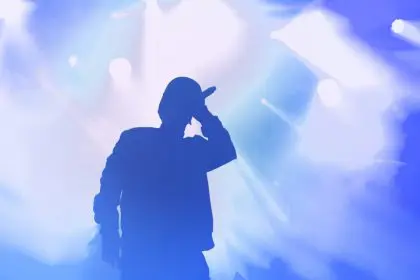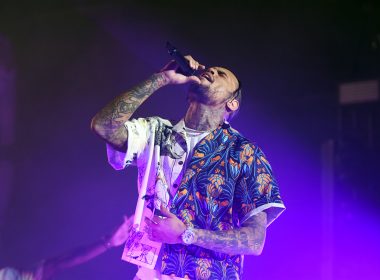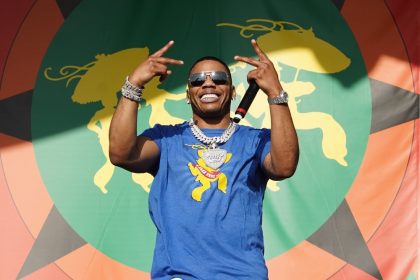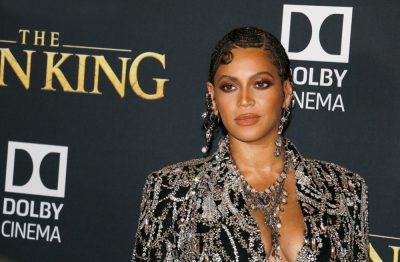Salah Ananse is a sound architect in Atlanta’s vibrant nightlife scene. With over two decades of experience as a DJ and producer, Ananse is beloved by partygoers for blending soul, house, and hip-hop into an infectious groove that gets and keeps any party going. His talent has placed him alongside legendary figures like Vikter Duplaix, DJ Kemit, and Rich Medina and has seen him open for icons such as Jay-Z, India Arie, and The Roots. Ananse has performed in Brazil, Ethiopia, and England.
As the mastermind behind ATLWKNDR and House in the Park, Ananse continues to nurture Atlanta’s house music culture, ensuring its legacy endures for generations to come. His latest projects, including the formation of his label AURALUXE and collaborations like Ananse Scales Rebellion, reflect his ever-evolving artistry and deep commitment to the music that moves us all.
In Who’s Spinning, he talks with Munson Steed about his career and vision for music for the people.
When you think about ATLWKNDR, what exactly is that? How does it relate to House in the Park? And what can people anticipate if they ever experience this?
So, ATLWKNDR was built around House in the Park. This year, we’re celebrating 20 years of House in the Park. This is the 13th annual ATLWKNDR, and it’s a five-day festival that we’ve built around House in the Park because so many people were coming to town, and we wanted to give them something to do. So, what we did is we took our prowess as DJs and event coordinators, and we found a space and threw some parties, and it grew from there. We started with maybe 12 DJs at the first ATLWKNDR, and now we’re up to 60 DJs throughout the five days. Usually, there are between 12 and 15 parties.
When you think about the idea of DJs, who were some of the founding members of those brothers who started spinning in Atlanta that inspired younger DJs like yourself to understand DJing as a business? It’s a career.
When it comes to house music, there was a guy named Dez, but the guy that I really got behind is a guy named Ron Pullman. Ron Pullman taught me so much. Growing up, I was going to his parties—first sneaking into his parties, then going to his parties. That guy is really the godfather of house in Atlanta. Then, my partners—I learned a lot from Kai Alce and DJ Kemit and Ramon Rasoul came up with the concept of House in the Park. He put us all together and made it work. That’s like 15,000 people [in attendance each year] now. We were really just some guys that loved the music, looked around, saw what we saw, and said, “Hey, we can do that here.” And we made it happen.
When people think house, and you think of Atlanta house style, how does Atlanta approach house differently than, per se, your brother in Chicago?
Well, Atlanta is a transplant city, so we have so many influences from different scenes. We have influences from the Chicago scene, from the New York scene, the New Jersey scene, the Baltimore scene, and all the way out to the West Coast with the stuff they were doing in the Bay Area. It’s crazy. You have that amalgamation of people coming from different areas of the country, some from overseas. We have a huge overseas party contingent here. So, Atlanta is just a mixture of that—heavily into the afro stuff, heavily into the soulful stuff. But it’s still a strong community, and it’s strong because all these people came together and made something.
When you think of sounds and somebody spinning a house set, what’s necessary to know that, “Hey, this isn’t a techno vibe; this is a house vibe”?
I’d say just the overall instrumentation—the soulfulness of it. That soulfulness is going to be there. Now, I will say, the guys in Detroit, because Kai is from Detroit, that’s definitely a scene. And that techno scene has been an influence on us, as well. But the Detroit techno has that soul—it’s just a little different, maybe a little bit faster, maybe a little bit more electronic than house. House is more influenced by disco, and all of it was influenced by disco, so let’s be clear. But I think the lushness of the sound is what now distinguishes house from a lot of the stuff that’s coming out—techno, which is more minimal. But it’s all Black music, so we love it.
If you’re going to get a record remixed out of Chicago—whether it’s Beyoncé or yourself—who are two guys that you think still can put their stamp on it so that Frankie Knuckles or any of the other gods of house would say, “They still got my voice”?
Terry Hunter’s killing it. He’s doing remixes for Beyoncé. I’ve had the pleasure of him putting some of my records out on his labels, so I love Terry. [There’s also] Wayne [Williams], all the guys from the Chosen Few—[they’re like] big brothers, mentors. They come down [to Atlanta] and play with us for the WKNDR, so we love them.
What records will always be spun during a special moment at House in the Park in Atlanta? If Terry Hunter was coming down, what’s gonna be played that people need to be checking for right now?
It changes every year.You have your hits like “Days Like This.” Of course everybody loves that. Shouts out to DJ Spinna. Let’s see … “Wonderful,” Teresa Griffin, Terry Hunter … “Hey Hey,” Dennis Ferrer—that’s another big one.
A lot of people want me to play my remix of Luther Vandross. The way Terry Hunter put that out, it’s just—there’s so many just good records. And the beauty of house is that people don’t get tired of it. They love it. The records don’t die; they just keep going. And when younger people hear them, they pick them up and start playing them themselves. So, I love how the music just keeps going.
Why would Beyoncé make a house record? What do you think it did for all those who had never experienced the music to be able to understand that she came to the genre and at least acknowledged it and had key individuals get on her records?
It allowed young people to see the music as not just something outside of themselves and allowed them to be a part of house. And I think that’s what the music needed. It needed young people to see house as something that they can do, not something that their parents did or something that they do over there in that other city. It’s something that everybody can get involved in.
As a cultural shaper, why is it important to encourage young people dabbling in the genre, particularly new DJs?
If we’re talking about house music, in order for it to be a living thing, it needs to be passed on. And if you’re not passing it on, if you’re not letting people know about what we’re doing and supporting them in what they’re doing, then it dies. So, we want to keep it alive. We think it’s beautiful. We think it’s a way of building community on a dance floor. So, we wanted to bring young people in, especially with the WKNDR. We’re bringing young people in to play and support them, and let the older people hear them, and let younger people dance and experience a party with us.
With DJ Kemit, what would you say he brings to the culture consistently? What do you get from Kemit?
Kemit has that soul. His approach is just a very soulful approach. His bass lines—I know his bass lines when I hear them. His rhythm, I know it when I hear it … He pulls something out of a record, even his remixes, that just makes it infectious. I really rock with Kemit. He brings that soul. I could tell you about Kai, too … Kai knows space, and Kai can give you a minimal record that’s just so soulful and groovy that you just want to stay on the dance floor. He’s not going to give you too much as far as instrumentation, even though he can when he wants to. But Kai just has that constant groove that’s infectious, and that’s that Detroit influence on the way he approaches his production.
How are women expanding the voice and spinning house?
Women are doing big things. As a party promoter, I’ve always put women on my lineups, and I like to see them play with the men because they can hold their own. You have Natasha Diggs in New York doing heavily disco, but just killing it, and she’s doing her own remixes as well—house remixes. You have Rashida out in LA, Nina Sol out of the Bay Area, Reborn in New York. There’s a bunch of people who are doing it, and they are making a lot of noise on the scene. So, I’m very supportive, and I’m also in awe of what they’re doing because they’re killing it, and I love to see them play. Funke in New Orleans—I just love seeing good DJs. They’re killing it, and I think women are an essential part of the scene—not only behind the decks, but in the crowd. They tell us what works and what doesn’t.
Everybody, make it down to ATL WKNDR. Thanks so much, Salah, for all you do …
Thank you for having me. ATL WKNDR 2024, Labor Day weekend, starts Thursday with a big, huge Prince party that we do. It ends on Labor Day, so come down, check us out. Five days. You’ll love it. Shouts out to my brothers in this endeavor: Ramon Rassoul, DJ Kemit, and Kai Alce. Oh, and shouts out to my wife [Nina Ananse] who helps me out—couldn’t do it without her. Seriously.














